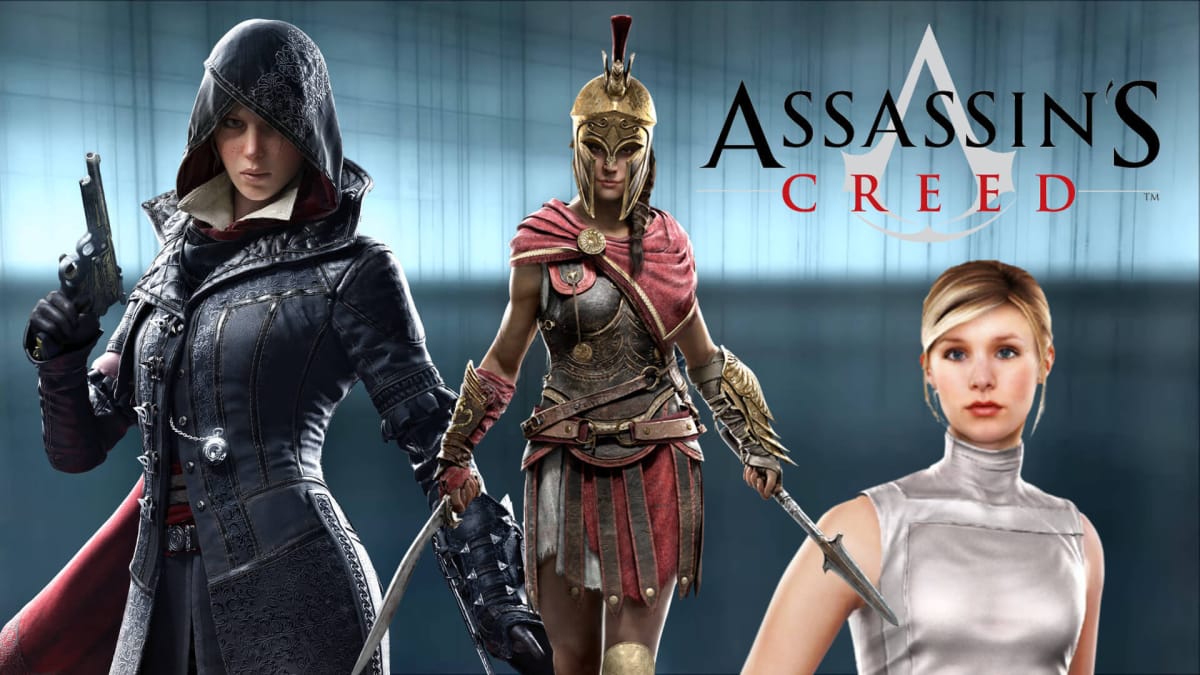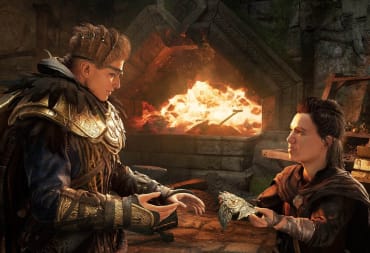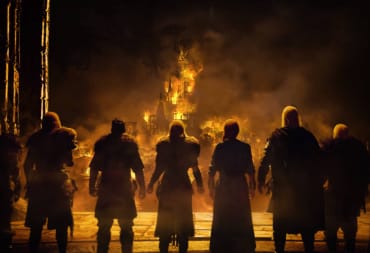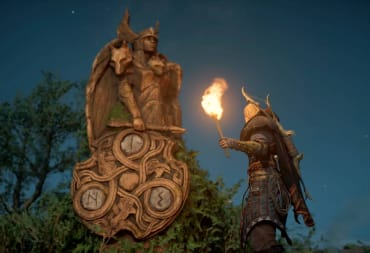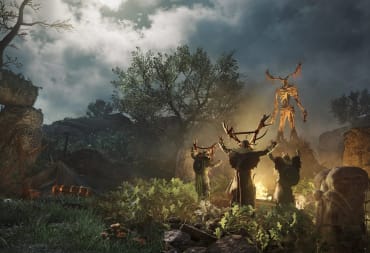The first Assassin’s Creed game was released in 2007, and the franchise has been a staple of the Ubisoft library ever since. It’s one of the best-selling video game franchises of all time, with sales topping 140 million units as of September 2019, and the next entry is due out in November 2020. The games have a heavy focus on escapism and explore many different time periods and situations, from being a misthios mercenary in Ancient Greece to a Native American assassin during the upheaval of the American Revolution. Unfortunately, one situation that the franchise has been hesitant to let players experience so far is that of being a female assassin.
To date, only four of the 23 games in the series have featured female protagonists, and only two of those are from the main 12 games in the series. According to recent news about Ubisoft, however, there seems to be a distinct reason for the lack of representation, which includes a workplace culture fueled by misogyny behind the scenes.
With that in mind, we wanted to re-examine some of the major female characters in the franchise and see what, if any, impact this mentality had on them and how real-life misogyny can bleed through the screen. So, let’s take a walk.
Lucy Stillman - Everyone’s Puppet
Lucy Stillman, portrayed by the excellent Kristen Bell, is the first major female character we’re introduced to in the series, appearing in the first and second games, as well as Brotherhood. She’s the lab tech working with Dr. Warren Vidic on Desmond Miles, and the one who actually has the technical know-how to operate the Animus and send Desmond into the past. At first, she is portrayed as a confident, composed woman, standing up to Vidic when he wants to subject Desmond to more dangerous tests, and coming across as a potentially sympathetic ally to Desmond in his quest to get out of Abstergo.
Unfortunately, this characterization falls apart very rapidly. Partway through the first game, we’re given Lucy’s backstory as a former PhD student who had been blacklisted from every academic institution because of the ludicrous nature of her studies on cognitive neuroscience. She then went to work for Abstergo Industries, the only place that would hire her, and worked on the Animus Project for several years until they tried to kill her. Vidic saved her life, and she’s been working for him ever since, a prisoner of her debt.
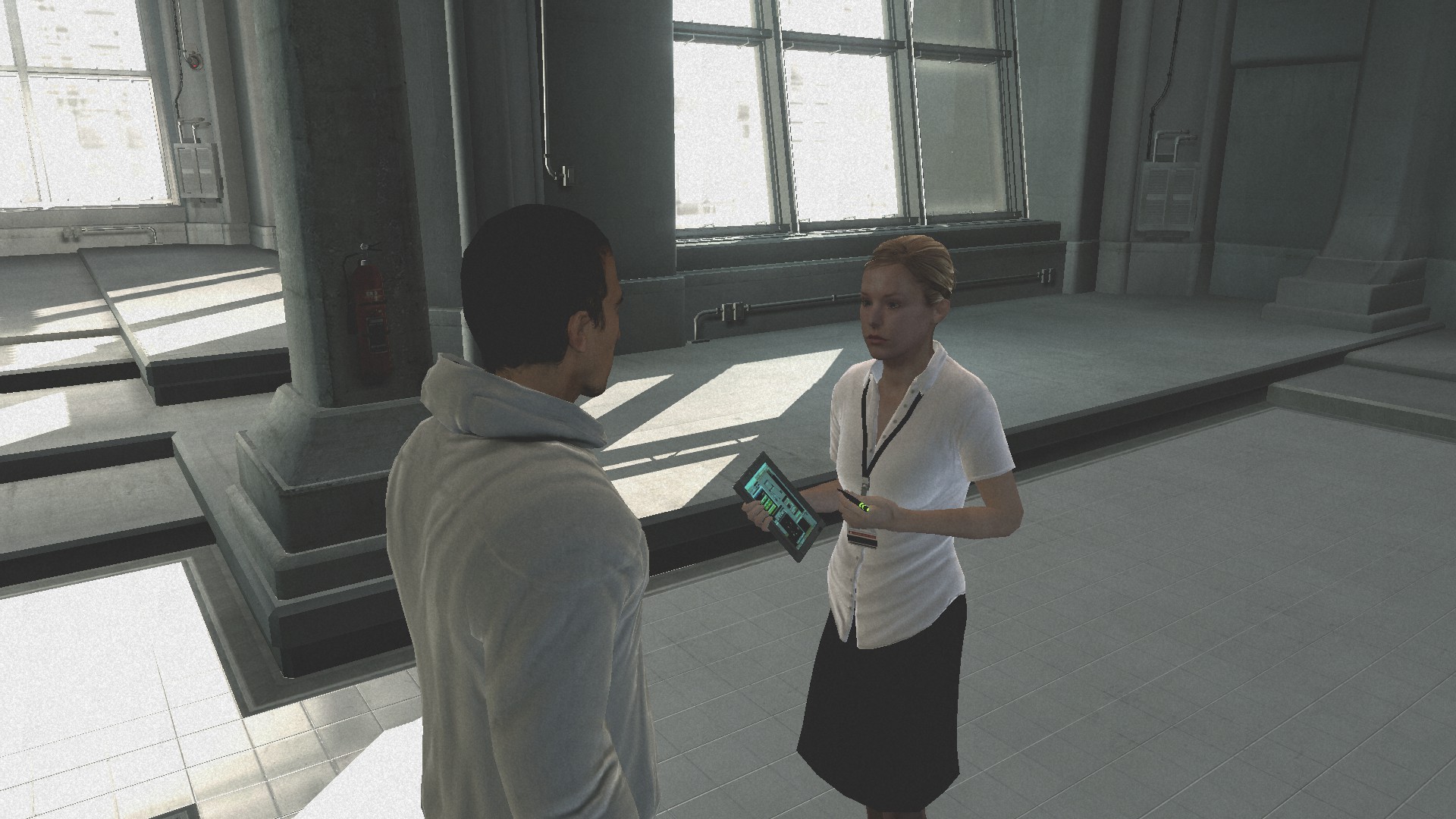
This revelation robbed Lucy of her agency and freewill, making her merely a puppet with a degree in higher education, rather than a woman who made her own choices and decisions. From a narrative perspective, this was all done to further Desmond’s story—he needed a sympathetic ally within Abstergo, and since it certainly wasn’t going to be Vidic, the game decided to go with Lucy.
In Assassin’s Creed II, Lucy breaks Desmond out of the facility and takes him to her allies in the Assassin’s Order for him to continue reliving his genetic memories and furthering the hunt for the Pieces of Eden. While Lucy and Desmond escaping Abstergo is cool, finding out she’s working for the Assassins adds yet another layer of puppetry to her character. She didn’t even start her studies in neuroscience because she wanted to; she started them in order to deliberately infiltrate Abstergo, because she was assigned to do so.
Brotherhood is the last game that Lucy appears in, and is perhaps the most egregious example of her character being treated poorly. The game pivots from previous entries and decides to make her a love interest for Desmond, with flirty and suggestive lines of dialogue between the two of them seemingly coming out of thin air. And that’s pretty much her role until she is frozen in place by a Piece of Eden and shanked in the stomach by an unwilling Desmond in order to further his character arc.
After her death, Desmond finds out that she had secretly defected to the Templar Order, which is why the Piece of Eden wanted her dead, and she had been working with Vidic the entire time. This posthumous reveal robs Lucy of the last things she had left as a character, truly leaving her as just a tool with dialogue used to further Desmond’s story. Not only does this reveal prevent her from explaining herself or her motivations, it also precludes any possible redemption and negates all of the bravery that she had shown through the first three games.
Over the course of just three games, Lucy goes from a level-headed, assertive scientist to a mess of actions with no motivations, because Desmond needed prodding in the right places. That’s not even discussing the degrading and weird-looking “butt-wiggle” walk or the fan service with the low-cut shirt and skin-tight jeans on her character model. She was never given the chance to truly be her own character or her own person. Instead she was used as a tool by the prominent men in her life, both the Templars and Assassins. This draws some real-life parallels to the many accusations leveled at Ubisoft executives who manipulated and abused the real women they worked with.
Now, if there had been other prominent female characters in Desmond’s life, or more prominent ones in the lives of his ancestors, you could chalk this up to just poor characterization and missing the mark of the character. However, Lucy is unfortunately the first of a long-standing pattern.
Evie Frye and Kassandra - The Shadow Twin and Misplaced Misthios
Marketing is one of the most important tools a company has at its disposal. It can make or break a game, and good marketing can shoot a project straight to the top of the best-seller list despite mediocrity, while sub-par marketing can consign it to being a much-beloved yet barely known hidden gem. Trailers, box art, interviews, and demos can all shape a player's pre-determined expectations of a game long before it's ever released. Part of the recent allegations released against Ubisoft specifically mentioned the misogyny of the marketing department, so let's see how the series treated two of its most prominent women: Evie Frye and Kassandra.
By the time the franchise got to Assassin’s Creed: Syndicate, it was flagging. Yearly releases and more spin-offs than you can shake a stick at had taken their toll, and it’s no wonder Syndicate was the last main game for two years, especially given the disastrous launch of Unity just 11 months earlier. Syndicate starred, for all intents and purposes, deuteragonists Jacob and Evie Frye. However, you’d never know that by looking at Ubisoft’s initial marketing material, their E3 reveal, or the game’s cover art, in all of which Jacob takes prominent billing as sole protagonist. In fact, the first notice of Evie as a protagonist had come from leaks several months earlier, when the game was initially billed as Assassin’s Creed: Victory.
According to the recent reports, Jacob and Evie were both supposed to take top billing originally. That makes sense, seeing as… that’s how the game plays. You do missions as both of them, they both have plenty of screen time, and it’s very clear they were designed as a pair. Evie is responsible, Jacob is reckless, and they balance each other out nicely and support each other’s character arcs. Evie learns to be more flexible while Jacob (sort of) learns to be more cautious.
However, according to Ubisoft's marketing department and chief creative officer Serge Hascoët women don't sell games. So Evie was instead treated as an ancillary character to Jacob's story for much of the game's marketing, particularly that which focuses on the Assassins' street gang, The Rooks. On the one hand, the gang is Jacob's idea and passion in-game, but on the other, Evie is also extremely involved.
But hey, at least Evie stars in the DLC! That’s great representation, right? No, no it’s not. Ubisoft did not think that Evie, or any woman, was strong enough to carry half of the marketing for the main game, and having her star in the DLC is the equivalent of sticking a Band-Aid on a stab wound. Just because “you tried” does not excuse the fact that they cut her out of the main game’s marketing in the first place. If anything, it's adding insult to injury.
Fast-forward three years from Assassin’s Creed: Syndicate to Odyssey. Taking place in Ancient Greece, 461 BCE, the game gives you a choice of protagonists in Kassandra and Alexios. The story plays out the same either way, with the one not chosen taking the role of the sibling in the game’s story. Unfortunately, Kassandra falls to the same hurdle of the marketing department excluding her from initial trailers, just like Evie.
Kassandra is also completely absent from the game's box art, which features either Alexios or a protagonist with their gender deliberately obscured by armor and a Spartan helmet. As if that wasn't enough, the statue that comes with some of the higher tier editions of the game also features, to great surprise, Alexios, rather than Kassandra. What makes this possibly more egregious than Syndicate is that it was later confirmed by the official game novelization, and later reports about Ubisoft, that Kassandra was the canon protagonist and originally intended to be the only protagonist.
In one sweeping blow, Ubisoft takes what is arguably the most feminist, equally representative game they’ve done and turned it on its head. No longer are Alexios and Kassandra equal choices meant for a wide audience. Now Kassandra is not a strong enough character to carry a game by herself, and Alexios is a way to pander to the misogynists who work at Ubisoft.
Still, the presence of Kassandra and the sharing of hers and Alexios’ animations confirms that they are able to animate women without “double the work,” contrary to what Technical Director James Therien stated when fans spoke up about a lack of female player characters in Unity in 2015. Though not part of the recent layoffs, Therien’s LinkedIn page confirms he is no longer working at Ubisoft as of 2017. In hindsight, the late addition of Alexios to Odyssey shows they were unwilling to put in the extra work to add women to Unity, not unable as they claim.
While having the option of Kassandra as a female protagonist is a step up from Evie’s hidden deuteragonist status and a long way from Lucy being used as a tool for Desmond, in some ways it’s still in the same league. As long as these creative choices are motivated and hindered by misogyny, both the male and female characters in the series will fail to reach their full potential.
Looking back at the Assassin’s Creed series, now knowing what was going on behind the scenes of the development team, the pattern becomes even clearer than it was before. It’s been obvious for a while that the series underrepresents women, even while claiming to represent people of all backgrounds. Since the first Assassin’s Creed, each game has had a notice at the beginning of it saying how it was created by “A multicultural team of various religious faiths and beliefs.” Syndicate, in addition to shafting Evie, modified the message to, “A multicultural team of various beliefs, sexual orientations and gender identities.”
Now those declarations feel hollow—and mocking. Ubisoft may have gotten rid of their biggest offenders, but that sort of a culture can become entrenched in a creative workplace environment. They still have a long way to go towards actually treating women with respect, both real and fictional. While we probably won't see many changes in the upcoming Valhalla, as it is already very far into the development process, we can look ahead to the future of the franchise and see, hopefully, more and better women's representation.
Have a tip, or want to point out something we missed? Leave a Comment or e-mail us at tips@techraptor.net
